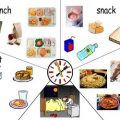很多457工作签证的考生由于英语基础比较薄弱,在备考雅思的过程中,还需要为雅思学习打下良好的基础。但是很多在墨尔本、悉尼的零基础英语的考生往往不知道选择什么样的教材来学习,墨尔本文波雅思学校根据多年的教学经验并结合学生的实际情况,推荐大家选择新概念二册。新概念教材不重传授抽象知识,而重培养实际运用英语的技能;分为许多分量适中的单元,循序小步前进,学习起来困难小,用力省,收效显;听、说、读、写四会并重,全面训练;兼顾趣味和实用,课文短小精悍,语言自然地道,内容生动有趣;练习精当,富于针对性。
Lesson 19 Sold out 票已售完
When will the writer see the play?
‘The play may begin at any moment,’ I said.
‘It may have begun already,’ Susan answered.
I hurried to the ticket office. ‘May I have two tickets please?’ I asked.
‘I’m sorry, we’ve sold out,’ the girl said.
‘What a pity!’ Susan exclaimed.
Just then, a man hurried to the ticket office.
‘Can I return these two tickets?’ he asked.
‘Certainly,’ the girl said.
I went back to the ticket office at once.
‘Could I have those two tickets please?’ I asked.
‘Certainly,’ the girl said, ‘but they’re for next Wednesday’s performance. Do you still want them?’
‘I might as well have them,’ I said sadly.
“剧马上就要开演了,”我说。
“也许已经开演了呢,”苏珊回答说。
我匆匆赶到售票处,问:“我可以买两张票吗?”
“对不起,票已售完。”那位姑娘说。
“真可惜!”苏珊大声说。
正在这时,一个男子匆匆奔向售票处。
“我可以退掉这两张票吗?”他问。
“当然可以,”那姑娘说。
我马上又回到售票处。
“我可以买那两张票吗?”我问。
“当然可以,不过这两张票是下星期三的,您是否还要呢?”
“我还是买下的好,”我垂头丧气地说。
【New words and expressions】 生词和短语
★hurry v. 匆忙
in a hurry(n.) : 匆忙
If you are not in a hurry. 如果你不急(时间、动作上的)
If you are not busy. 如果你不忙(行为上的)
in no hurry(n.) : 不匆忙
I am in no hurry.我不急
hurry up(v.) : 快点
go to : 去
hurry to : 匆匆忙忙地去
He goes to school.=He hurries to school.
come in : 进来
hurry in : 匆匆忙忙地进来
go out : 出去
hurry out : 匆匆忙忙地出去
★ticket office 售票处
★pity n. 令人遗憾的事
pity(n.)
What a pity! 真遗憾!
It is a pity.
It is a pity to be grown up. (it做形式主语)
It is a pity to steal a bicycle.
I am sorry(a.). 我感到很遗憾.
I am sorry to hear that.听到这个消息我很遗憾
注意 sorry 与 pity 词性上的区别
★exclaim v. 大声说
shout : 大声喊=cry,call out
★return v. 退回
return to : 回来 return to China/Beijing 回到中国/北京 return to you 退回你
return money : 还钱 =pay back,repay
★sadly adv. 悲哀地, 丧气地
涵盖了所有悲哀
【课文讲解】
at any moment : 在任何时候, 随时
at the moment : =now
at that moment : =just then 就在那时
I will help you at any time.我随时都会帮你
may+动词原形 “可能”
may (must,can’t) have done……对过去的推测
must,can’t,may+动词原形, 表示对现在、未来的推测
must : 一定, 很可能 She must be a model.
may : 有可能 She may be a model.
can’t : 不可能 She can’t be a model.
She must(may,can’t) have been a model.
I must have watched TV.
I may have watched TV.
I can’t have watched TV.
I hurried to the ticket office. 匆忙地
May I do…? 我可以吗?(用 “may” 表示 “我可以吗?” , 只能与第一人称相连)
have 是最活跃的词, 可以指任何的意思.
have coffee : 喝咖啡
have ticket : 买票 (习惯用法)
I’ll have/take sth. 我买…(一般不用 “buy” , 习惯用法)
sell out : 卖完了
what a pity! 真令人遗憾!
Can(May) I…? 我可以…吗?
Can you…? 你可以…吗?(第二人称不能用 “may” 来表示 “你可以….吗?” , 只能用 “can you….?” )
Could I…? 我现在可以…吗?(在问句中更委婉的说法, 比can I 更礼貌些)
they指tickets
for next Wednesday’s performance
用名词所有格来取代时间 : “…时间的”
用介词for, 起修饰作用
ticket for+事情
ticket to+地点
May I have a ticket to Tianjing?
May I have a ticket for the sports meeting?
May I have a ticket ? (英文中的问句, 常常起礼貌作用)
May I have your name? 比 “What’s your name?” 更有礼貌些
still : 还……可以和任意时态连用
still, yet……都和完成时态连用(原先认为)
want them [wCnWem] 注意连读
might as well,may as well+动词原形, “还是…好” (无可奈何)
had better : “最好” +动词原形(积极心态)
I might as well take the umbrella with me.
共有的概念 “推测”
十七课 : 对现在的推测
十九课 : 对现在和过去的推测
不在于must,may,can’t是什么时态, 而在于后面加的是原形还是have done.
加原形是对现在的推测, 加have done对过去的推测.
may : ⑴推测 “可能”
⑵ “可以” May I do sth.? 我可以做某事吗?
⑶ may,might(can,could) 对语气的强弱
- 除了 “might” “could” 是 “may” “can” 的过去式的概念外
- 在表达 “可以… 吗?” 时, 可以用 “might” “could” 替换 “may” “can” , 而区别在于语气上更委婉些
III. 在表示 “推测” 句型中, 并不用 “might” “could” 来表示对过去的推测, 只能是 “推测” 的可能性比 “may” “can” 更小些的意思, must->may->might->can’t(推测的可能性语气下降)
may as well=might as well “还是…好”
上述所讲是对现在和未来的推测, 对过去的推测要用虚拟语气
【Multiple choice questions】多项选择题
2 The writer ______ .
a.was very pleased to get tickets for next Wednesday’s performance
b.didn’t buy tickets for next Wednesday’s performance
c.didn’t want tickets for next Wednesday’s performance
d.wasn’t too pleased to get tickets for next Wednesday’s performance
2.(d)
be pleased to do 对做什么事感到很开心
文中用了 “might as well”
be pleased to. . 高兴
be too pleased to 太高兴
be not too pleased to
too…to…太怎么样以至于没做(too old to learn太老而不能学)
not too…to…太怎么样以至于还是做了(not too old to learn 不是太老还可以学)
3 The play may begin at any moment. It ______ .
a.has begun b.won’t begin for a long time
c.hasn’t begun yet d.began a long time ago
3.(c)
may+动词原形; 对现在或未来动作的推测
- has begun 已经完成, 说明已经做了
- won’t begin for a long time 好久都不c. 会开始
- began a long time ago 过去做了
7 I might as well have them. I am ______ to have them.
a.very pleased b.very glad c.not very glad d.delighted
7.(c)
9 ‘What a pity!’ Susan exclaimed. Susan was ______ .
a.pleased b.glad c.sorry d.amused
9.(c)





